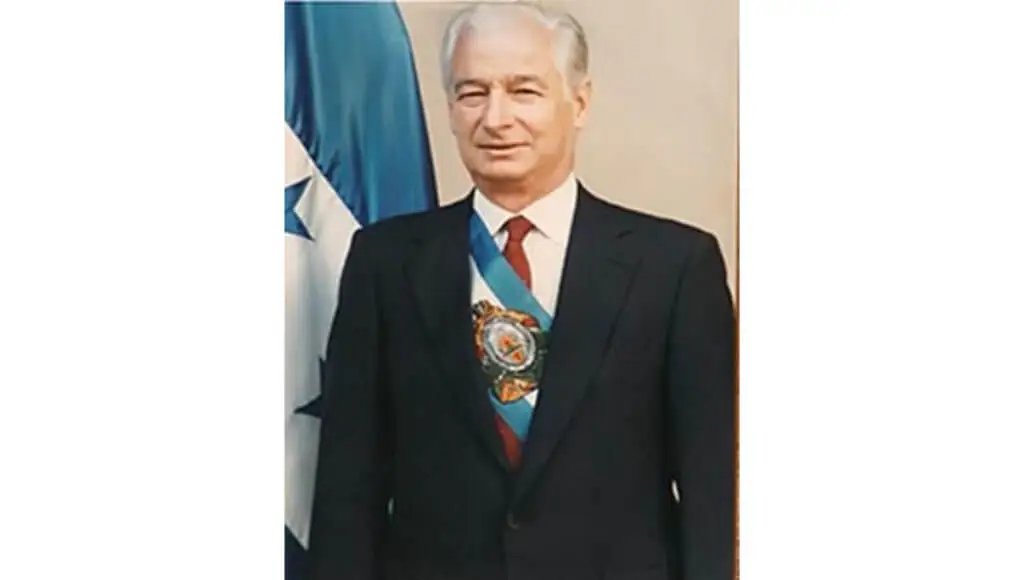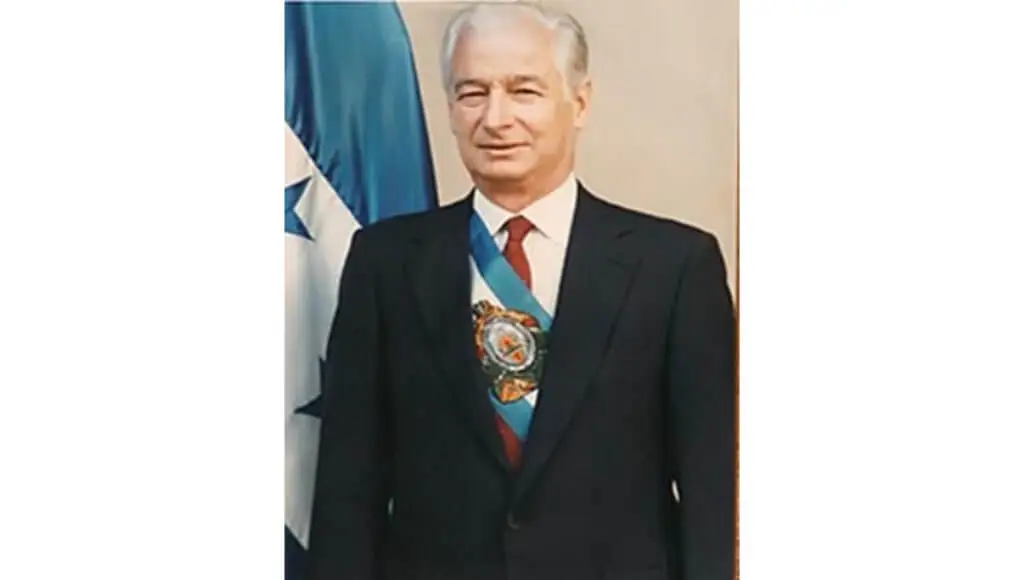Biography of José Simón Azcona Hoyo

He was born in La Ceiba (1927) and died in Tegucigalpa (2005) to Spanish parents. He graduated as a Civil Engineer from UNAH (1970), with specialized studies in housing, planning, and urban development in Mexico. He worked for several years in the Honduran Federation of Housing Cooperatives.

He was a member of the Liberal Party affiliated with the Rodista faction. In 1977, he was elected as a member of the Central Executive Council of the party, and in 1979, he held the position of Secretary of Organization and Propaganda in the same organization.
He supported the presidential candidacy of Roberto Suazo Córdova, but later broke ties with him after being removed from the presidency of the Central Executive Council. He ran as a presidential candidate within the Liberal Party and won the elections held in November 1985, taking office on December 23 for the 1986-1990 term.
His electoral victory had special characteristics. Although he was individually surpassed by the candidate of the main opposition party, Rafael Leonardo Callejas, he was declared the winner according to the reforms introduced in the Electoral Law.
Having won the internal elections in the Liberal Party, Azcona accumulated the votes of the other candidates from his party, totaling 786,594 votes compared to 701,406 obtained by the National Party. (Azcona personally received 424,358 votes, while Callejas obtained 656,882 votes).
He assumed the presidency with expectations that he would be able to establish, given his personality, a government of austerity and national dignity. Unfortunately, he continued the trend, already visible in his predecessor, of subordinating civilian interests to military and geo-political interests of the United States, not always in harmony with the true interests of the country.
On the other hand, the deepening economic and social crisis became more evident. The factionalism within his party limited his administrative management, as disagreements between the Executive and Legislative branches arose on several occasions, despite both being controlled by the Liberal Party.
Azcona, for his part, did not attempt to unify the growing divisions centered around presidential nomination candidates for the 1990-1994 term, giving the impression, confirmed by himself, of ending his presidential term as soon as possible.
During his administration, external indebtedness of the country continued to accelerate, as did currency devaluation through the mechanism known as CETRAS, which benefited the national and foreign export sectors. This pointed towards the economic consolidation of this pressure group, which had already displaced the traditional land-owning livestock sector from the apex of power during the Callejas administration, the sector that had traditionally held political power in the nation.
During the Suazo Córdova administration, he served as Minister of Communications, Public Works, and Transportation. In 1985, he was elected President of the Republic for the term (1986-1990).
Jose Azcona governed during a very difficult time for Central America, in the midst of the Cold War. He was one of the architects of the Central American peace process initiated in May 1986 in Esquipulas, Guatemala.
During his tenure, he had to confront the Central American armed conflict and economic crises, as well as the presence of U.S. and Nicaraguan military forces in our territory.
Following the signing of the Esquipulas II Accords in 1987, this process led to the disarmament and demobilization of the Nicaraguan Contras in 1990. In 1992, the war in El Salvador came to an end, and in 1996, peace was achieved in Guatemala.
On the occasion of the IV Central American Sports Games, the Olympic Village was built in Tegucigalpa and named after him. He participated in the peace negotiations in the isthmus that facilitated disarmament, troop demobilization, and the holding of elections in Nicaragua, putting an end to the civil war that had devastated the region.


